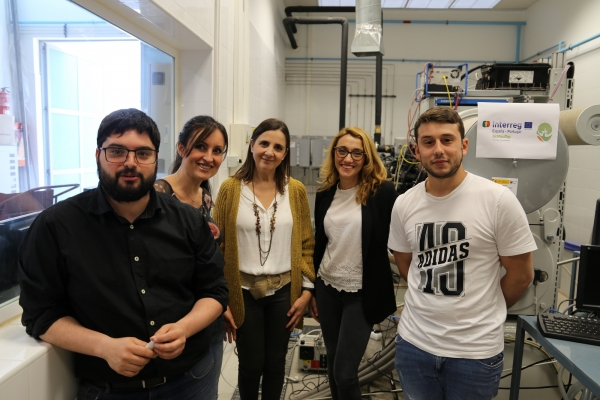The Circular Economy, based on the economic use of resources, and respect for the environment through a more efficient use of them, is here to stay, and the management of biomass to produce energy with compounds previously considered simple waste is on the rise in areas such as Andalusia (Spain) and El Alentejo (Portugal).
While it is true that in these borderland areas there are many elements with which to obtain calorific power, such as the remains from olive pruning and pits, and almonds, there is still no quick and cheap method to verify how good the biomass is, how much energy can be obtained from it, what harmful elements it may contain and, in general, the quality of the by-product.
In order to address this situation and stimulate the growth of the biomass sector in southern Spain and Portugal, the Biomasstep project was launched, which seeks to develop a technology that makes it possible to analyse the parameters necessary to immediately gauge the quality of biomass. The BIOSAHE (Biofuels and Energy Saving Systems) research group at the University of Cordoba, led by project coordinator Professor Pilar Dorado, has launched a model based on NIRS (Near Infrared Spectroscopy) technology that provides access to all these parameters, on site.
This model, after being tested with many samples in the study areas, allows a grower who has produced biomass and wants to sell it, or a company that wants to buy it, to verify its quality before completing the transaction, through the introduction of a sample.
One of Biomassstep's main objectives is to transfer the knowledge generated at the University to the sector, and to the farmers themselves, thereby democratizing the technology and innovation carried out by the research groups.
The second of the cornerstones on which the project rests is environmental and socioeconomic sustainability. NIRS technology consumes very little electricity and does not pollute, with characteristics that facilitate the growth of renewable energy obtained from biomass, such that this project's positive impact on the environment is great. In addition, the use of biomass to produce energy helps to address one of the most important social concerns today: climate change.
Its socio-economic impact includes the creation of new market niches. Thanks to this stimulus the rural sphere is furnished with added value, and by fomenting the use of all the products derived from this activity, jobs are created in some areas (such as Andalusia, El Alentejo, and El Algarve) that have traditionally suffered from structural unemployment problems.
Biomasstep features, in this way, a global approach in which the conversion of agricultural waste, whose energy value has normally gone overlooked, is facilitated through the model developed. Through the use of tools like these the sector's autonomy is bolstered, while promoting an increase in the use of this type of energy, which, in the area studied, has great potential, given the amount of biomass available. Innovation and its transfer thus pave the way for a more sustainable future, open to the entire agricultural community.


